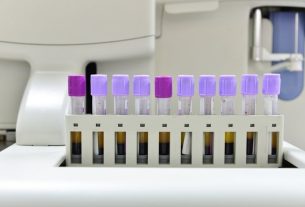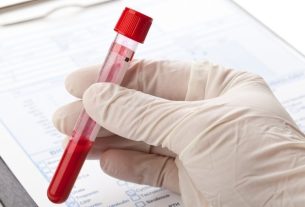Endoscopic retrograde cholangiopancreatography (ERCP) is an exam that is used to diagnose and treat diseases of the bile ducts and pancreas, such as choledocholithiasis (stones in the bile ducts), cholangitis (infection of the bile ducts), pancreatitis (inflammation of the pancreas) and some tumors.
Typically, the ERCP exam is done in the hospital due to the risk of bleeding, intestinal perforation, and acute pancreatitis.
Before performing ERCP, it is important to talk to your doctor, and it may be advisable to temporarily stop some medications, such as anticoagulants or AAS, in addition to fasting for a few hours before the exam.

What is it for
The CPRE exam is indicated for:
- Evaluate the functioning and anatomy of the bile ducts and pancreatic ductin case of suspected obstruction due to gallstones, strictures or tumors, for example;
- Perform biopsy of lesions which may indicate cancer;
- Treat illnesses such as choledocholithiasis, cholangitis, pancreatitis and tumors.
Thus, in addition to confirming the diagnosis of diseases that affect the bile ducts and pancreatic duct, through ERCP it is possible to perform minor surgeries, remove gallstones obstructing the ducts and place prostheses to facilitate the drainage of bile and pancreatic secretions.
How ERCP is performed
The ERCP exam is performed after general anesthesia and with the person asleep, and begins with the introduction of a thin tube with a camera at the tip, similar to an endoscopy device, through the mouth until it reaches the duodenum, which is where the bile ducts connect. connect to the small intestine through an opening.
Typically, the doctor injects contrast through the tube into this opening, to take X-ray images of the abdomen and check for changes in the bile and pancreatic ducts. Furthermore, during the ERCP examination it is possible to remove gallstones and perform biopsies, for example, if indicated.
The ERCP exam lasts around 45 minutes and, normally, the person can return home the same day, after the anesthesia wears off, or the next day.
How to prepare for the exam
Before the ERCP exam, it is recommended to fast for 8 hours and temporarily stop some medications, such as AAS and anticoagulants, according to the doctor’s instructions. Sometimes, it may also be recommended to do blood tests, such as blood counts and platelet levels, to assess the risk of complications.
Furthermore, as the exam is carried out under anesthesia, driving should be avoided for the next 24 hours after the exam, so it is recommended to have someone who can take the person back home after leaving the hospital.
Possible risks
Although the risk of complications is low, the main risks of the ERCP exam are:
- Dor;
- Abdominal swelling;
- Acute pancreatitis;
- Infection of the bile ducts;
- Bleeding;
- Intestinal perforation.
Furthermore, as it is an examination carried out under general anesthesia, there is also a risk of developing allergic reactions to the anesthetics used, changes in heartbeat and blood oxygenation. See more risks of general anesthesia.
Contraindications for the ERCP exam
The ERCP exam is contraindicated in cases of acute pancreatitis, high risk of bleeding, due to changes in blood clotting, for example, allergy to iodinated contrast, intestinal perforation and history of previous surgeries or illnesses that may make the exam difficult.
Furthermore, ERCP is sometimes not indicated in cases of heart or lung disease, especially when severe, and a recent history of heart attack.
Bibliography
- BARON, Todd H. et al. ERCP. 3.ed. Elsevier Inc, 2019. 54-58.
- NIH. Endoscopic Retrograde Cholangiopancreatography (ERCP). Disponível em: <https://www.niddk.nih.gov/health-information/diagnostic-tests/endoscopic-retrograde-cholangiopancreatography>. Acesso em 30 jan 2023
- WOJDA, Thomas R. et al. Endoscopic retrograde cholangiography: Complications, emergencies, and related topics. IJAM. Vol.4, n.2. 124-141, 2018
- BRAZILIAN SOCIETY OF DIGESTIVE ENDOSCOPY. Endoscopic Retrograde Cholangiopancreatography. Available at: <https://www.sobed.org.br/geral/orientacao-ao-paciente/exames/colangiopancreatografia-retrograda-endoscopica/>. Accessed on January 30, 2023
- STATPEARLS. Endoscopic Retrograde Cholangiopancreatography. 2022. Available at: <https://www.ncbi.nlm.nih.gov/books/NBK493160/>. Accessed on January 30, 2023

Sign up for our newsletter and stay up to date with exclusive news
that can transform your routine!
Warning: Undefined array key "title" in /home/storelat/public_html/wp-content/plugins/link-whisper-premium/templates/frontend/related-posts.php on line 12
Warning: Undefined array key "title_tag" in /home/storelat/public_html/wp-content/plugins/link-whisper-premium/templates/frontend/related-posts.php on line 13



